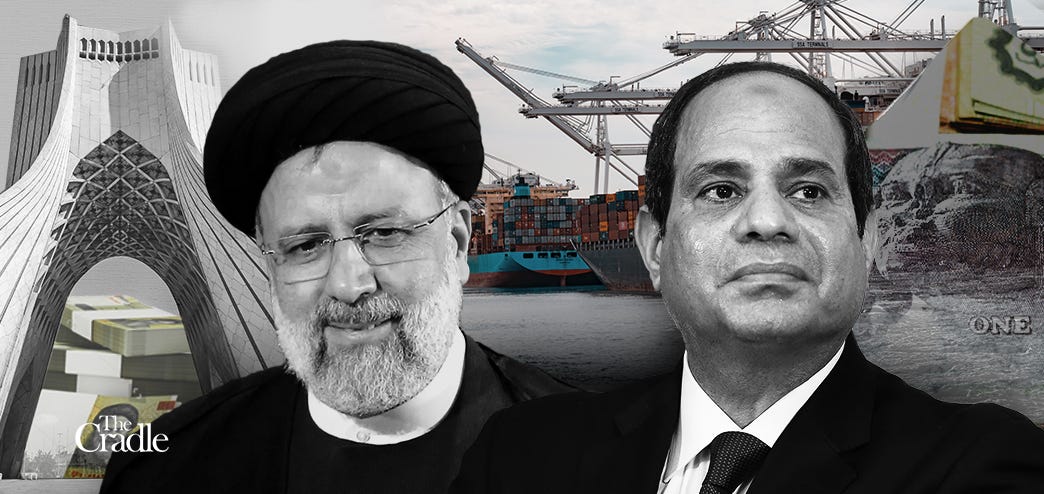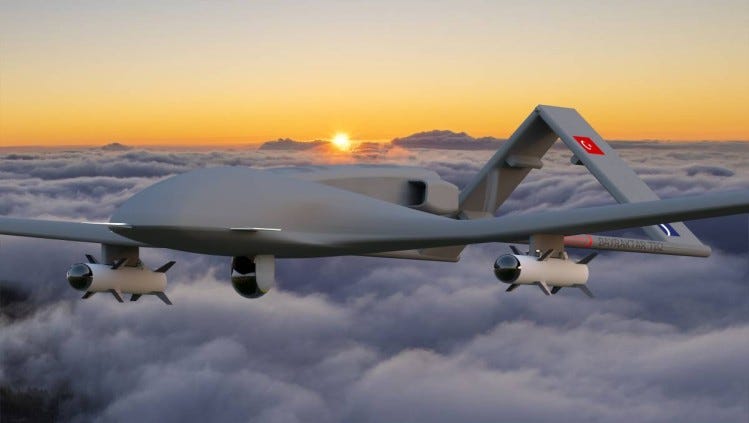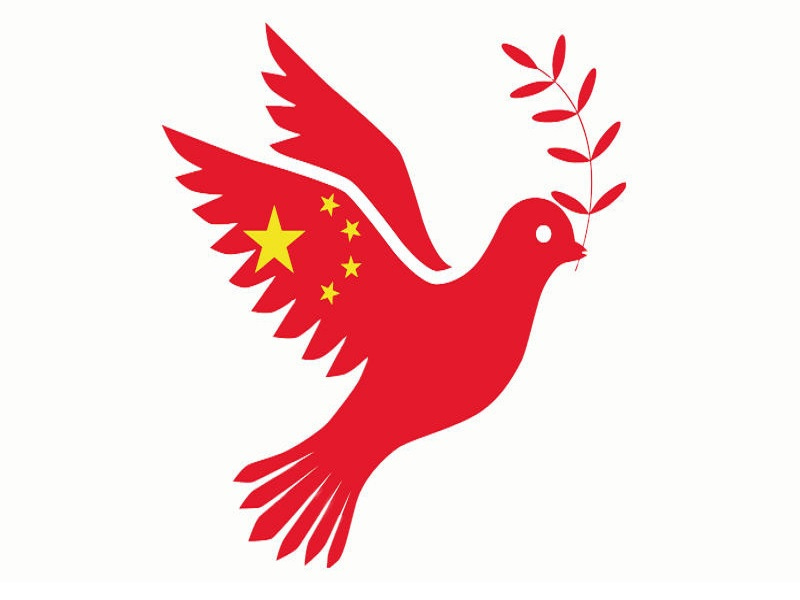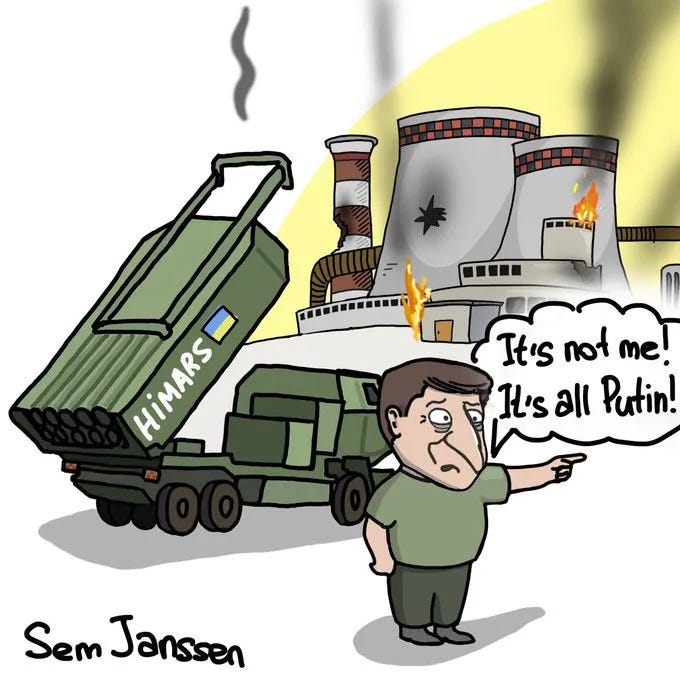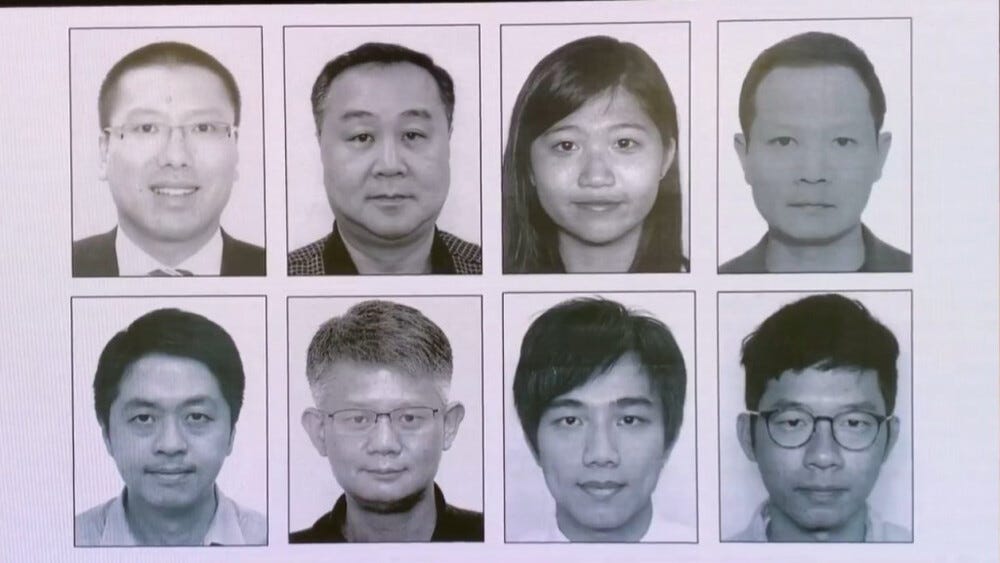Inflections
Egypt and Iran reconcile, NATO Drones in Nippon, China Neutral In NATO Proxy War, Final Hour of Zelensky's Terror Ploy, Bounty on Hong Kong Fugitives,
Egypt and Iran reconcile
Forty-four years after severing relations, amid an uptick of diplomatic activities across the region, Egypt and Iran are finally taking cautious steps towards rapprochement. For decades, the two countries have followed divergent paths on foreign policy.
Yet, recent developments in West Asia, following reconciliations between several countries, have prompted talk of a potential breakthrough.
These developments include Saudi Arabia and Iran’s Beijing-brokered rapprochement, Syria’s return to the Arab League, Riyadh’s resumption of ties with Damascus, a thaw in Turkiye’s relations with Saudi Arabia, the UAE, and Egypt, in addition to the onset of direct talks with the Ansarallah-led government in Yemen.
‘Silence from Egypt is a position’
The prospect of a rapprochement between Iran and Egypt has stirred different responses from the two nations. Tehran has openly expressed its willingness to mend ties with Cairo, even from the highest levels of authority.
In contrast, Egypt’s silence has been deafening – literally. In mid-May, Egyptian media quoted one source saying, “The ongoing official silence from Egypt is a position.” This steadfast silence by the Egyptian government is reminiscent of its stance towards Turkiye.
That lull was eventually broken when Egyptian President Abdel Fattah el-Sisi and his Turkish counterpart Recep Tayyip Erdogan unexpectedly shook hands in Doha during the FIFA World Cup in Qatar.
This surprising gesture raises the question: Could an Iranian-Egyptian handshake be on the horizon as well? The diplomatic landscape seems to be shifting, leaving room for speculation and optimism over a potential reconciliation between these two geostrategic regional states.
On 14 May, Fada Hossein Maleki, a member of the Iranian parliament’s National Security and Foreign Policy Committee, revealed that negotiations between Iran and Egypt were underway in Iraq, with the intention of re-establishing relations between and reopening embassies.
But the most important Iranian announcement was made by the Islamic Republic’s Supreme Leader Ali Khamenei himself, who welcomed the restoration of relations with Egypt during his meeting on 29 May with the Sultan of Oman Haitham bin Tariq, whose country traditionally plays the role of regional mediator.
Shadi Ibrahim, a researcher in international relations and security studies at Istanbul University, informs The Cradle that the differences between Tehran and Cairo differ from Egyptian-Turkish disputes, as the issues with Iran “are primarily external and not internal, unlike Ankara, which Cairo sees as a competitor for influence and wealth in the region.”
According to Ibrahim, Egyptian-Iranian rapprochement was not initially on Cairo’s agenda due to these external reasons that date back to the Iranian revolution. However, with Arab Persian Gulf capitals – that sought to isolate Iran since 1979 – now mending ties at breakneck speed with Tehran, the process of reconciliation with Egypt is now also beginning to take shape.
A chequered history
Historically, the relationship between Egypt and Iran has experienced alternating phases of close alliance and intense hostility. A connection between the two regional states was solidified in 1939 when then-Iranian Crown Prince Mohammad Reza Pahlavi married Princess Fawzia, the daughter of King Fuad I of Egypt and Sudan. However, their subsequent divorce in 1945 led to a crisis between the two nations when her brother, King Farouk of Egypt, insisted on the divorce and refused Princess Fawzia’s return to Iran.
As relations thawed, the Free Officers Revolution overthrew King Farouk in July 1952, and Egypt raised the banner of Arab nationalism and confrontation against Israel. Given pre-revolutionary Iran’s recognition of Israel in 1960, relations deteriorated once again and remained uneasy until the death of President Gamal Abdel Nasser in 1970.
Under the leadership of Nasser’s successor, President Anwar Sadat, Egypt, and Iran experienced a resurgence in ties. However, the 1979 Islamic Revolution in Iran, led by Ayatollah Ruhollah Khomeini, shattered the progress as it toppled the pro-western and pro-Israel Shah, who subsequently sought refuge in Egypt, where he remained until his death in 1980.
Iran’s revolution stood in hostile opposition toward the Zionist occupation state – just as Egypt was finalizing its Camp David peace treaty with Tel Aviv. The same reasons that drove Abdel Nasser to sever ties with Iran in 1960 were echoed in Khomeini’s decision to do the same with Egypt in 1979.
Decades of frozen relations between Egypt and Iran finally started to warm up with the January 2011 uprising that toppled President Hosni Mubarak. In a significant step, Egyptian President Mohamed Morsi visited Tehran in April 2012, marking the first visit by an Egyptian president to Iran in three decades.
This was followed by Iranian President Mahmoud Ahmadinejad’s visit to Cairo in February 2013, signifying a new chapter in their relationship and the announcement of embassy reopenings.
However, the subsequent Sisi-led and Saudi/Emirati-backed coup against Morsi and his Muslim Brotherhood-dominated government in July of the same year halted the progress of relations with Tehran, albeit with a reduced level of hostility. Egypt, thereafter, adopted a strategy of “neither hostility nor friendship.”
Post-Camp David
Since the 1978 signing of the Camp David Accords, Cairo has aligned itself with US policy against Iran. Any shifts in relations between the two regional states today “come in the context of bilateral polarization and the competition of regional powers among themselves,” political analyst Abd al-Rahman Adel tells The Cradle.
In recent years, Egypt’s status has diminished in light of regional changes, which shifted the balance of power to favor wealthy Persian Gulf sheikhdoms. This transformed Cairo from an “active power” into a “state affiliated with the new forces in the region.”
During this period, the polarization between Persian Gulf Arab states and Iran – as well as among the Gulf states themselves – ignited unrest and conflict. An economically strained Egypt, reliant on the Gulf’s largesse, positioned itself as a reliable ally in its geopolitical struggle against Iran, aiming to achieve a sense of balance, particularly in Yemen.
Though with time, “these countries discovered that Egypt’s role was modest and its participation was limited, contrary to expectations,” Ibrahim explains to The Cradle. Aid to Egypt from the Gulf was severely curtailed as a result.
Impact of Saudi-Iran normalization
The rise of new global powers like Russia and China coincides with the declining US status in West Asia and Washington’s shift of focus to the Ukraine war and China’s backyard. Then in March, a significant development occurred with implications for Egyptian-Iranian relations.
Tehran and Riyadh agreed to normalize their relations in Beijing, China, after seven years of estrangement. This breakthrough served as a green light for countries in the wider region, including Egypt, to engage in dialogues with Iran. Prior to that, in August 2022, Kuwait and the UAE had agreed to restore full diplomatic relations with the Islamic Republic.
In February of last year, Iranian Foreign Minister Hossein Amir-Abdollahian announced that a new page had opened in Iran’s relations with the countries of the region, saying “our hand is open to our neighbors,” and stressing that “strengthening relations with neighbors, especially Arab countries, is a key priority in Iranian politics.”
In May, Amir-Abdollahian expressed hope that Tehran and Cairo will resume relations, stating: “We have always welcomed the development of relations between Tehran and Cairo,” adding, “The heads of our missions – interests sections – in Tehran and Cairo have good meetings. There is good access to the authorities of both countries.”
Iraqi mediation efforts
Multiple sources claim that Iraq has been hosting talks between representatives from Iran and Egypt since March, with Iraq’s Prime Minister Muhammad Shia al-Sudani leading mediation efforts. Despite all the positive speculation, however, Iraqi sources say that the communication has not yet led to understandings to start normalizing relations. Sources point out that Cairo is still not enthusiastic about normalizing ties for reasons that have not yet been disclosed.
Iraqi political sources tell The Cradle that Sudani aims to establish himself as a key interlocutor between Iran and Arab countries, as his predecessor Mustafa al-Kadhimi sought to do. While the Iraqi president has informed Riyadh of his intention to mediate between Cairo and Tehran, the Saudis have reportedly not shown much enthusiasm.
The sources emphasize that Cairo is unlikely to take serious steps toward improving relations with Iran until the relationship between Tehran and Riyadh reaches a more favorable level.
It is expected that Egyptian President Sisi would require clear support from his Saudi and Emirati patrons – Mohammed bin Salman and Mohammed bin Zayed – before restituting Egyptian-Iranian relations.
Simultaneously, the Sultanate of Oman is playing an important role in facilitating negotiations between Cairo and Tehran. Iranian president Ebrahim Raisi disclosed that Omani Sultan Haitham bin Tarik had conveyed a message from Cairo expressing its desire to improve relations. However, Arab diplomatic sources indicate that Oman’s efforts are still in their infancy, and have not yet resulted in significant progress.
Limited gains; minimal impact on Israel
Researcher Ibrahim believes that the restoration of relations between Egypt and Iran may not lead to much more than “the economic benefit of the Egyptian regime and breaking the isolation imposed on Iran.” In any case, this economic openness is likely to remain limited, with little room for substantial growth and expansion, particularly in light of Israel’s presence along the borders.
Ibrahim and Adel agree that “the Egyptian-Iranian rapprochement will be on a limited scale and will not in any way harm the Egyptian partnership with Israel, nor will it contradict American policy.”
According to Shadi, “Iran will benefit more from these relations.” Transforming relations from negative to positive, even if it is limited to the economic or religious tourism sector, “may represent a step towards a greater role in the future in issues important to Iran, such as the conflict with Israel.”
However, Shadi points out that Cairo is well aware of this, and “will not allow Tehran to compete with it in the Palestinian file.” Cairo benefits here from its geographical location and the fact that Egyptian lands are the only passage to the world for the Iranian-backed Palestinian resistance factions in Gaza. This reality reinforces Egypt’s position and ensures that it remains a pivotal, albeit passive player in the Palestinian context.
As the situation continues to unfold, it is unclear how Egypt’s relationship with Iran will develop and whether it will lead to a broader transformation in regional dynamics or primarily serve as a limited and pragmatic engagement.
Read more here.
NATO Drones in Nippon
Japan's interest in acquiring armed drones from Turkey's Baykar defense firm underscores the nation's recognition of the evolving security landscape. Japan finds itself in a region characterized by geopolitical tensions and the rise of China as a global power. By procuring armed drones, Japan aims to bolster its defense posture, improve situational awareness, and enhance deterrence capabilities.
The success of Turkish-made Bayraktar TB2 drones in recent conflicts captured Japan's attention. These drones have demonstrated their effectiveness in Ukraine and the Nagorno-Karabakh conflict. By witnessing the impact of such unmanned aerial systems on the battlefield, Japan recognized the potential of armed drones to provide critical advantages. These include intelligence gathering, precision strikes, and reduced risk to human personnel.
Furthermore, armed drones offer Japan an opportunity to strengthen its defense industry partnerships and diversify its military technology sources. Historically reliant on traditional defense suppliers, Japan seeks to expand collaborations and access cutting-edge technologies from emerging players in the market. By engaging with Turkey's Baykar and acquiring armed drones, Japan can tap into Turkey's unmanned systems expertise. This will foster defense cooperation and knowledge sharing in this rapidly advancing field.
Turkey's Foreign Minister, Mevlut Cavusoglu, recently expressed Turkey's readiness to supply armed drones to Japan. In addition, Turkey has bilateral agreements with Malaysia and Indonesia, both interested in Turkish defense industry products. Baykar TB2 drones are in demand due to their proven record in the field. In addition, they have comparative advantages over drones manufactured in other countries, such as the United States and Israel.
The increasing interest from countries like Japan, Malaysia, and Indonesia in acquiring Turkish drones signifies a potential shift in defense cooperation and procurement dynamics. As Turkey gains recognition for its advanced unmanned aerial systems, it opens avenues for collaboration and technology transfer. This allows nations to diversify their defense capabilities beyond traditional suppliers. The mutual benefits derived from such partnerships could lead to enhanced regional security cooperation and knowledge sharing in the field of unmanned systems.
In conclusion, Japan's interest in acquiring armed drones from Turkey's Baykar defense firm comes from a comprehensive assessment of regional security challenges. It also arises from the demonstrated effectiveness of these systems in recent conflicts. It also arises from the desire to diversify defense partnerships and modernize defense capabilities. By procuring armed drones, Japan aims to enhance its defense posture, strengthen its technological capabilities, and contribute to regional stability. Embracing this technology reflects Japan's proactive approach to security challenges and its commitment to maintaining a robust and effective defense posture in an ever-changing security landscape.
Read more here.
China Neutral In NATO Proxy War
By Andrew Korybko
Kiev’s foreign patrons would have certainly been aware of their proxy clandestinely procuring drones from China via its volunteers’ purchases, yet they turned a blind eye out of military convenience while simultaneously pushing false claims about that country arming Russian forces and thus not being qualified to mediate.
The West has falsely claimed since around the start of this year that the Chinese state is secretly supplying Russia with military equipment, which thus disqualifies it from mediating a political resolution to the NATO-Russian proxy war in Ukrainesince it isn’t neutral. That allegation has now inadvertently been disproven by none other than Kiev, whose Deputy Defense Minister told local media that volunteers procure Chinese drones for their forces since they can’t do so directly due to US pressure.
This admission doesn’t mean that the Chinese state is arming Ukraine against Russia just like similar claims from the Mainstream Media over the past year about Russian volunteers procuring the same for their own country’s forces doesn’t mean that the Chinese state is arming Russia against Ukraine. What it shows is that private Chinese drone suppliers are selling their wares to similarly private buyers who in turn clandestinely pass them along to the most direct participants in this proxy war.
It's not realistic to hold these companies responsible for whatever the ultimate end user does since they have no way of even know who they’ll be after processing any given transaction. As the world’s leaders in this industry, imposing sanctions against them would also be counterproductive from the West’s perspective since that de facto New Cold War bloc’s companies can’t fill the resultant void. For this reason, these drone channels remain in place, at least for the time being.
Kiev’s foreign patrons would have certainly been aware of their proxy’s clandestine drone procurement efforts from China, yet they turned a blind eye out of military convenience while simultaneously pushing false claims about that country arming Russian forces and thus not being qualified to mediate. Likewise, the Chinese state itself obviously knew that it wasn’t arming either of the direct participants in this proxy war, which is another reason why relations with the West plummeted earlier this year.
Objectively observers can now know beyond any reasonable doubt that Chinese officials were indeed telling the truth this entire time when they denied those claims from their Western counterparts, whose words have now turned out to have been bald-faced lies as advertently proven by Kiev’s own admission. No Western official or media will likely be held to account for their role in this months-long anti-Chinese disinformation campaign, but hopefully average Westerners will still hear about it and learn the truth.
Read more here.
Bounty on Hong Kong Escapees
The Hong Kong government has extended its efforts to arrest political subversives, issuing arrest warrants for eight fugitive offenders and offering bounties of HK$1 million each.
The escapees, who now live in AUKUS countries (Australia, UK, US) were selected from a longer list of wanted subversive agents. The mugshots of those issued with arrest warrants this week depict the profiles of three ex-legislators, three activists, a unionist and a lawyer. Their “very serious crimes”, were “subversion of state power”, an offence punishable by up to life imprisonment.
Hong Kong is a self-governing region of China under the “one country, two systems” model agreed when the UK 99-year lease on Hong Kong, forced on the Qing government in the 19th century, ended in 1997. The national security law was applied to Hong Kong after the tumultuous, protracted protests funded and directed by the AUKUS countries in 2019. The national security law has jurisdiction over any person of any nationality who has committed any offence in China.
The international law of extradition (technically, in Hong Kong’s case, the surrender of fugitive offenders, as only states engage in extradition) includes certain safeguards. However, the AUKUS countries and Canada and New Zealand suspended their extradition agreements with Hong Kong when the national security law was imposed, tom protect their subversive agents from criminal justice.
The offending fugitives will need to reconsider their travel to jurisdictions which do maintain extradition agreements with China ( including HK). The bounties on offer are to encourage governments and their police forces to facilitate rendition of the eight fugitives.
Hong Kong ’s reforms to its British imposed colonial legal, political, education and media sectors has proved a boon to the city’s prosperity and political stability. These new warrants are the latest sign that China will not tolerate foreign political subversion. While the arrest warrants will be ignored by the AUKUS governments it is clear that Chinese citizens working for foreign governments to subvert Hong Kong and China will not be as brazen as the eight fugitives named in the international arrest warrants.




